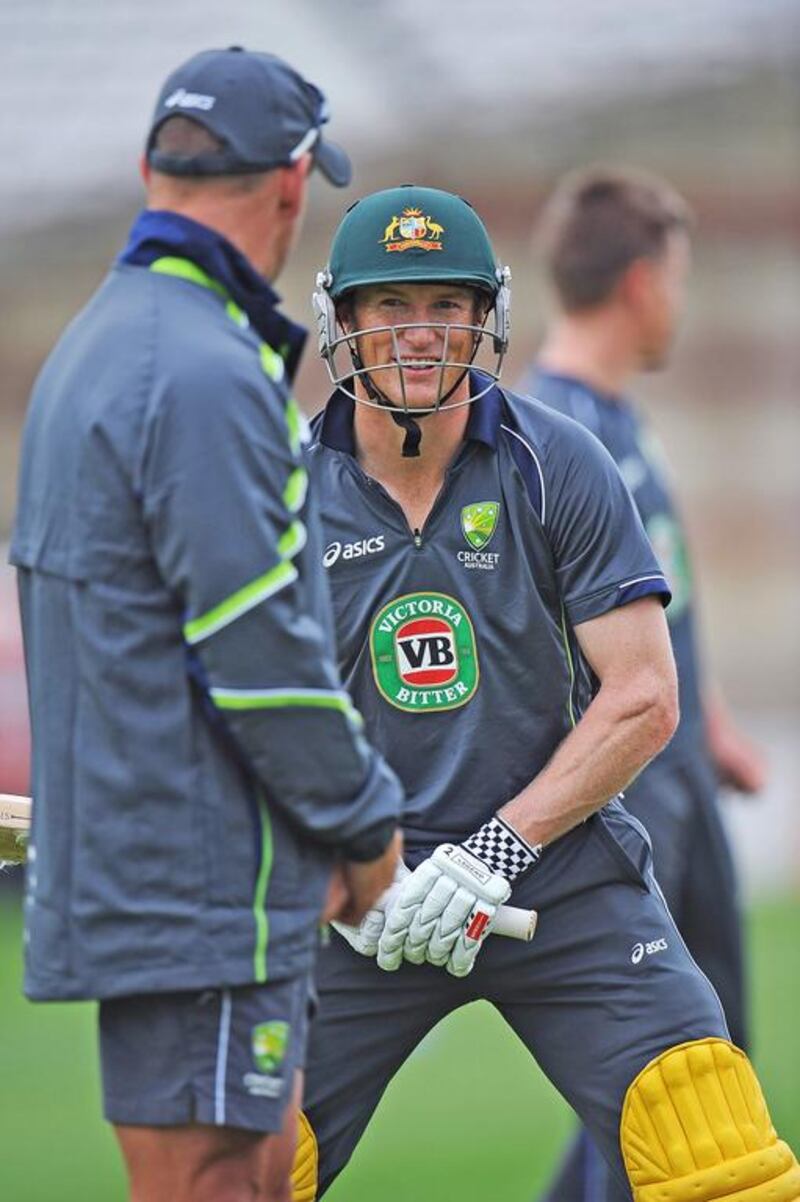Ian Chappell, the former Australian captain, reckons that it is a pointless exercise.
“Agreeing to this meaningless ODI tour of India so close to an Ashes series is evidence that Cricket Australia is more concerned with dollars than sense,” he wrote in a recent column.
It is a sentiment that has been reprised by many in Australia, with the first Test of the return Ashes now just over a month away.
For most of the Indian players, these seven one-day internationals, and the Twenty20 match that acted as a curtain-raiser to this whistle-stop tour, serve as preparation for Sachin Tendulkar’s farewell series, the two hastily arranged Tests against West Indies.
Until the men from the Caribbean were invited at the 11th hour, these limited-overs matches would have been India’s only games on home soil this season.
The marketing men tried to sell this as the contest between the world’s first- and second-ranked ODI sides, but given Australian cricket’s recent travails, few expected India to be severely tested.
Australia, though, have never been intimidated by Indian conditions, not when wearing coloured clothing.
Their last two seven-match series in India, in 2007 and 2009, both resulted in 4-2 wins.
India came into the series having won 17 and lost just five games in 2013. Even with Tendulkar gone, the batting looked immense, brilliantly led by the likes of Shikhar Dhawan and Virat Kohli. With Yuvraj Singh announcing his return with a 35-ball 77 in the Twenty20 game, there were those who felt Australia’s bowlers would be overpowered.
That certainly did not happen in Pune. Set 305 to win, India looked to have a chance as long as Kohli and Suresh Raina were in the middle. But having been flattened by Yuvraj’s bat in the shortest format, the bowlers were a different proposition once James Faulkner dismissed Dhawan early. He took out two other left-handers, Raina and Ravindra Jadeja, as well, while Clint McKay, who now boasts an astonishing 89 wickets from just 51 games, cleaned up MS Dhoni.
The spells of the night, however, came from two old hands. Mitchell Johnson was consistently up to 150kph while conceding just 38 in his 10 overs. His pace and hostility deserved better than the lone wicket, Yuvraj caught behind.
Shane Watson was not as quick, but his relentless accuracy and changes of pace fetched him the wickets of the men that looked most likely to spearhead a victory push, Rohit Sharma and Kohli.
Even Xavier Doherty bowled relatively tidily, and Australia’s potency with the ball was in stark contrast to India’s slipshod display. The left-arm spin from both Yuvraj and Jadeja troubled the batsmen, but there were few other alarms once the new-ball threat was seen off.
Vinay Kumar and Ishant Sharma both came in for a pasting, while R Ashwin’s two wickets came at a cost of 55.
No one will pretend that these matches are the ideal precursor to Ashes Tests, but Australia’s selectors could do a lot worse than George Bailey. Leading the side in Michael Clarke’s absence, Bailey is not the administrators’ favourite. He is a bit too candid for that. But with the bat, the man who has a middling first-class record can point to 1,146 ODI runs at 47.75.
In Pune, his 85 off 82 balls revived a listing innings. At 31, he is not going to be the next Bradman or Harvey. But the pride with which he wears the shirt and the sense of calm he always seems to radiate are two qualities that the present-day Australian side could really do with. This may not be a waste of a tour after all.
sports@thenational.ae





